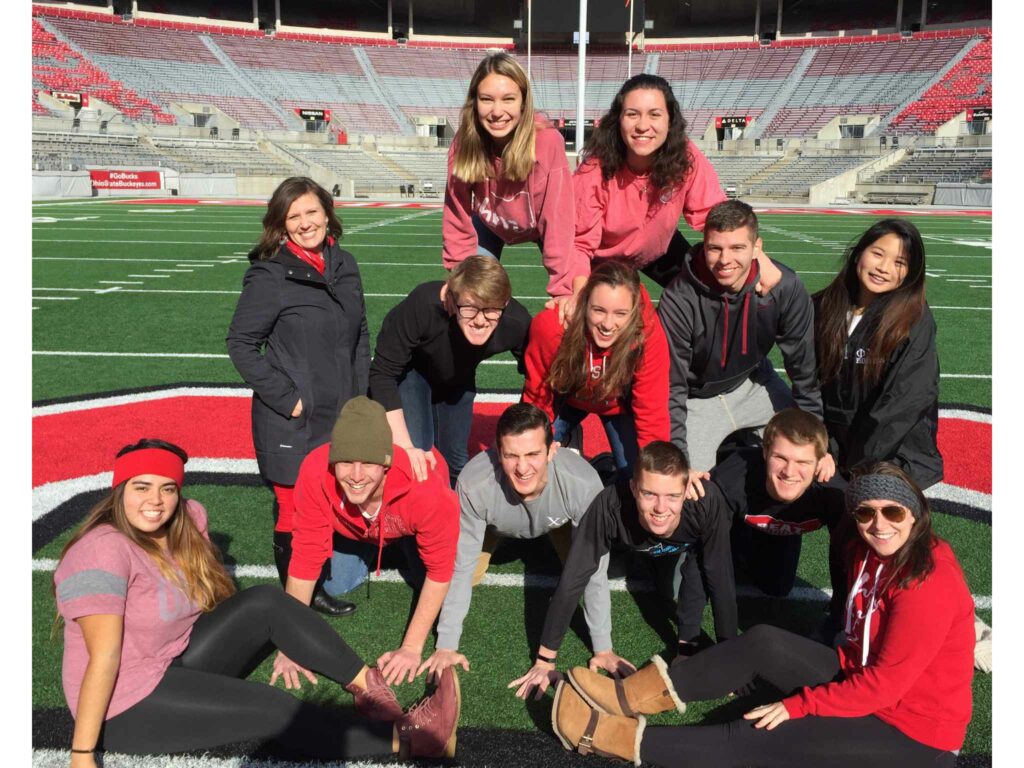How to Maximize the Benefits of Extracurricular Activities

Extracurricular activities provide academic, social and personal benefits for high school students. Learn how to maximize the impact of extracurriculars and why they’re crucial for students’ growth. Get tips for balancing a busy schedule and suggestions for great activities you may not have considered.
Some of the links below are affiliate links. At no additional cost to you, we earn a commission if you click through and make a purchase. We appreciate your support.
I’ve had the privilege of being a student, a high school teacher, a college faculty member, and a parent of teenagers, and throughout my journey, I’ve witnessed the immense value of extracurricular activities. While academics are undoubtedly important, extracurriculars have proven to be equally vital in shaping a student’s holistic development.
When I reflect on my own undergraduate experience, I’m grateful for the extracurricular opportunities that enriched my education. It’s clear that learning extends far beyond the classroom.
During my time as a faculty mentor for a program at a selective university, our mission was to help students create a transformative college experience. We knew that solely focusing on academic subjects wouldn’t suffice.
To truly thrive, students need to explore a wide range of interests, develop new skills and engage with their community.

Students who participate in extracurriculars in high school are better equipped to take full advantage of opportunities in college.
Extracurricular activities are an essential part of a student’s educational experience. These activities can vary tremendously, from athletic teams and music groups to special interest clubs and community service organizations.
Regardless of the form they take, extracurricular activities provide opportunities for students to explore their interests, develop new skills and build relationships with their peers.
Participating in these activities can have a positive impact on academic performance, personal development and future career.
While extracurricular activities can be beneficial, it is important to find a balance between schoolwork and other commitments. Students should also explore different types of extracurricular activities to find the ones that are the best fit for their interests and goals.
The Benefits of Extracurricular Activities
We can’t overstate the importance of extracurricular activities in a student’s overall development. We’ll discuss the value of extracurricular activities in terms of academic performance, social development, personal interests, community engagement and developing a competitive edge.
Academic Performance
Research has shown that participating in extracurricular activities can have a positive impact on academic performance.
According to the National Association of Secondary School Principals, students who participate in extracurricular activities tend to have higher grades, better attendance records, and are more likely to go on to college.
In over 20 years of teaching, I can confidently say that students who are more involved outside of class are almost always more motivated to do well in school. If they start missing extracurricular activities, grades often go down and it’s time to for me check in.
Social Development
Students who participate in extracurricular activities develop stronger social skills and experience greater character development.
Participation helps teens build higher self-esteem and more confidence. According to the Department of Education, they develop a stronger sense of belonging, positive networks of friends and relationships with supportive adults.
Extracurricular activities also provide opportunities for students to develop important skills such as time management, goal setting, persistence, leadership skills and teamwork.
Personal Interests
Extracurricular activities can help students explore favorite hobbies or new passions outside the classroom.
They provide a space for students to try new things, develop new skills, and make friends outside their typical social circle. Students discover their strengths and weaknesses, and they learn how to use constructive criticism to grow.
As a parent, I’m grateful for activities that allow my teens to pursue interests I know nothing about. I also appreciate positive adult role models. When it feels like my kids aren’t listening to me, it helps to know they’re getting good advice from other adults.
Community Engagement and Service
Another important benefit of extracurriculars is a sense of civic responsibility and service.
Many extra-curricular activities involve working with others and giving back to the community. Exposure to people from different cultures and backgrounds helps develop empathy and communication skills.
When teenagers learn how it feels to respond to a need, they’re more likely to be active community members as adults.
A Competitive Edge for College
Finally, participating in extracurricular activities can help students develop a competitive edge. College admissions officers and employers often look for well-rounded individuals who have demonstrated leadership, teamwork and a commitment to their community.
By participating in extracurricular activities, students can build a strong resume and stand out from the crowd on college applications.
9 Tips for Balancing a Busy Schedule
Extracurricular activities can be a great way to enrich your school experience and develop new skills. But it’s not easy to balance a busy schedule that includes both school and extracurricular activities.
Parents, students and college consultants often assume that students who participate in more extracurriculars have stronger resumes and therefore a better chance at college acceptance, particularly at selective institutions.
We want to challenge that assumption with findings from a 2023 study from Ohio State: While students who participate in one sport and one other activity are more likely to go to college – including more selective colleges – participating in multiple extracurricular activities doesn’t give them an advantage.
So what does this mean?
Focus your energy on one sport and one other extracurricular activity. Do those things really well. Make connections, pursue leadership roles, set and achieve some goals. Take full advantage of what those two activities have to offer.
We would also recommend that you volunteer or serve in some way. It doesn’t need to be every week. Maybe it’s something you do for one week in the summer or on your breaks from school. Or it could be a few hours a month.
What matters is that you’re giving back and making a positive impact on the world.
Effective Time Management
Now that you know not to spread yourself too thin, here are some tips to help you effectively manage your time.
- Create a schedule or calendar with all of your classes, extracurricular activities and other commitments so you can prioritize your time and meet important deadlines.
- Choose a physical or digital planner or a planning app that works best for you. It should be something you’re comfortable using and that you’ll use regularly.
- Prioritize your assignments based on their importance, deadlines and time required to complete.
- Dedicate specific times for studying and doing homework.
- Stay focused and avoid distractions when you’re studying.
- Stop multitasking. Focus on one thing at a time.
- Ask for help from teachers if you’re struggling with a particular subject. Hire a tutor if you need one.
- Make time for self care so you don’t burn out.
- Stay flexible and be willing to reevaluate if something isn’t working.
Different Types of Extracurricular Activities
You can choose from a variety of extracurricular activities and each type has its own unique benefits.
Arts and Culture
If you have a passion for the arts, there are many extracurricular activities that you can participate in, both at school and local organizations.
- School plays or musicals
- Art club
- Band, choir, music ensembles
- Dance team
- Creative writing club
- Photography club
- Yearbook or school newspaper
- Language club
- Improv theater
- Art, music or creative writing lessons
Benefits of arts and culture activities include developing your creativity, building your self-esteem, learning how to deal with mistakes and strengthening problem-solving skills.
Sports and Teamwork
If you enjoy being active and working with others, sports activities may be a great fit for you. Some examples include:
- School sports team
- Intramural sports league
- Cheerleading
- Dance teams
- Martial arts classes
- Yoga classes
- Outdoor adventure clubs
- Sailing or rowing clubs
Participating in these activities can help you boost your confidence, reduce stress, improve teamwork skills and enhance physical fitness.
Special Interest Clubs
There are many clubs and student organizations available that cater to a wide range of interests, such as:
- Speech and debate team
- Robotics club
- Skateboarding club
- Ski club
- Environmental club
- Chess club
- Book club
- Gardening or horticulture club
- Movie or film club
- Gaming club
- Entrepreneurship club
- Faith-based club
- Business and marketing clubs
Joining a club or organization can help you develop new skills, meet new people, and make a positive impact in your community.
Online and Remote Opportunities
Even students who are homebound or don’t have access to many local extracurricular activities can find some great virtual options such as:
- Online coding and programming classes
- Virtual book clubs
- Online gaming communities
- Online science and math competitions
- Online writing workshops
- Virtual public speaking organizations
- Language or music lessons
- Remote volunteer work
- Virtual cultural exchange programs
- Podcasting
Participating in online extracurricular activities can help you build your digital literacy skills or academic skills and learn from peers around the world.
Jobs
Jobs and entrepreneurial pursuits may not come to mind on a typical list of extracurriculars, but they have many important benefits.
One of my sons decided not to play a particular sport because he wanted to work instead. I was skeptical of the value of a part-time job in place of after-school activities.
I couldn’t have been more wrong!
His communication and interpersonal skills have dramatically improved and he takes pride in earning his own money. He’s also more motivated and responsible.
Some jobs may include:
- Babysitting
- Pet sitting or house sitting
- Refereeing
- Food service or retail jobs
- Etsy stores
- Vendor markets or craft show booths
- Social media management
- Lawncare services
- Sports card sales
- Art commissions
- Camp counselor
Not only does the research support what I’ve seen, a study from UNC also suggests that work experience helps teenagers connect to their local communities, engage in a professional manner and build real-world skills.
Student Recognition Programs
Being accepted into a student recognition program is a special honor and can offer unique opportunities. Some of these programs include:
- National Honor Society
- Quill and Scroll for High School Journalists
- Tri-M Music Honor Society
- Mu Alpha Theta Mathematics Honor Society
- National Art Honor Societies
- Sociedad Honoraria Hispánica for students enrolled in Spanish and/or Portuguese
To get the most out of these student recognition programs, you need to get involved after you’re accepted.
Civic & Service Organizations
These extracurricular activities have a specific focus on community involvement and giving back.
I teach a college class on persuasion. Over the course of a semester, my students learn about the importance of active citizenship. I want them to understand that making a positive impact on their community can be anything from simple acts of service to long-term volunteer commitments.
Some possibilities for high school service include:
- Student government or student council
- Peer helpers
- Lincoln-Douglas Debate (National Speech & Debate Association)
- 4-H
- Model United Nations
- Key Club International
- American Legion Boys State & American Legion Auxiliary Girls State
- Volunteer at your place of worship
- Volunteer with local nonprofit organizations or community groups
One final thought:
Remember to track your activities throughout high school.
The Common App provides space for up to 10 extracurricular activities. You’ll be asked to include the hours per week and weeks per year for each activity.
It’s easy to forget something, especially if you don’t participate all four years. Create a digital document you can easily edit or designate a spot to write things down.
